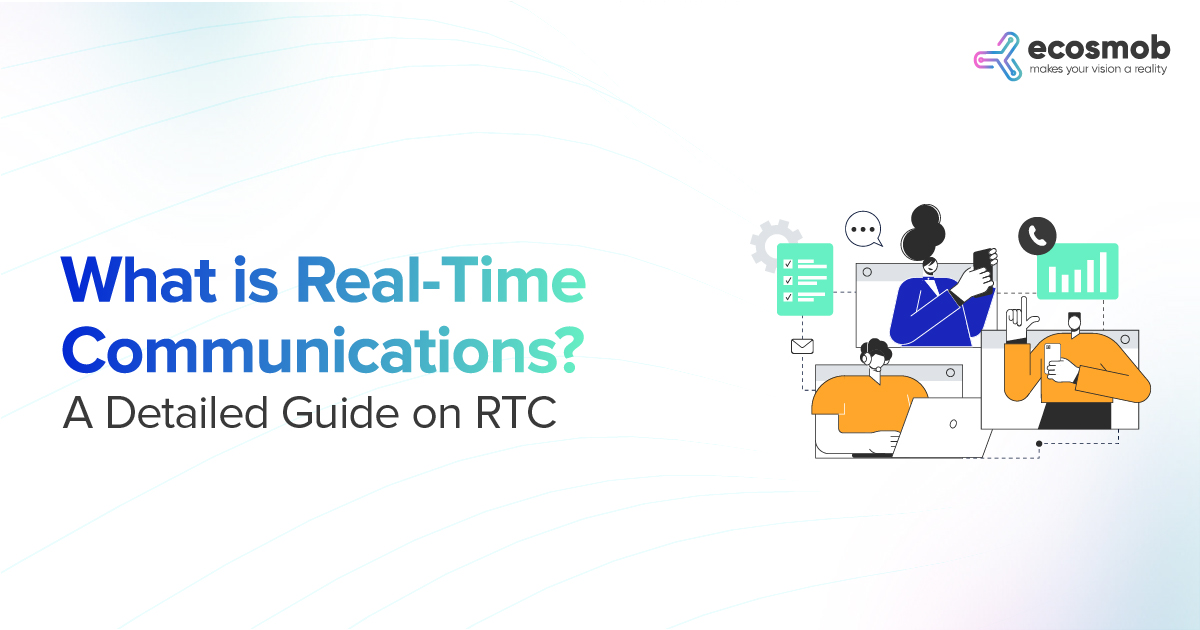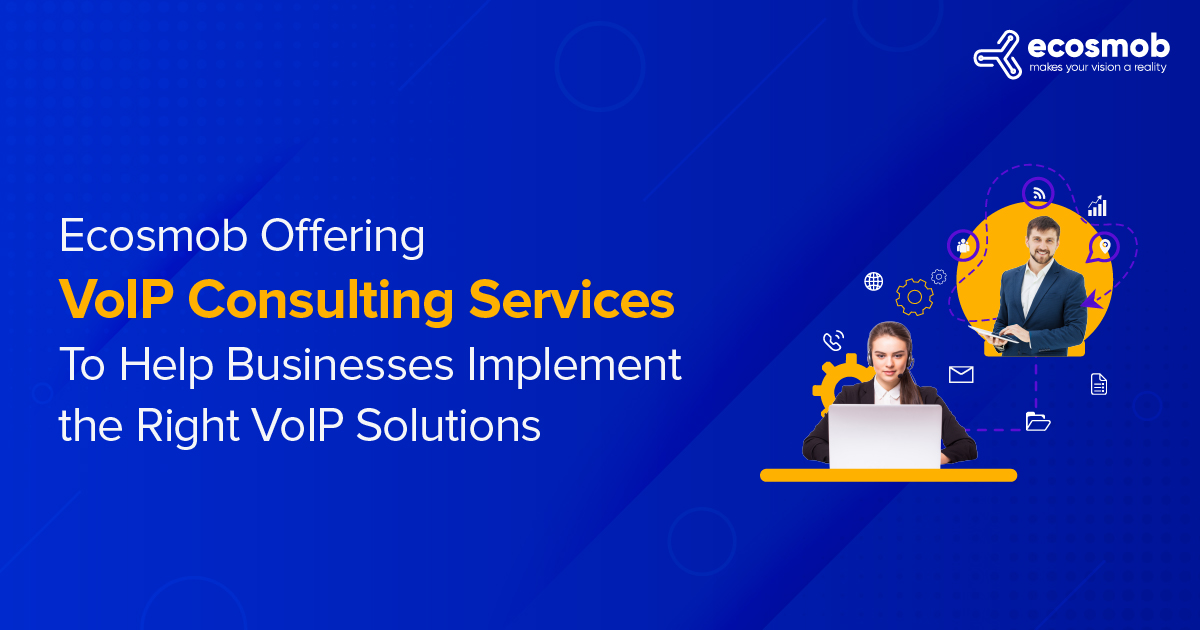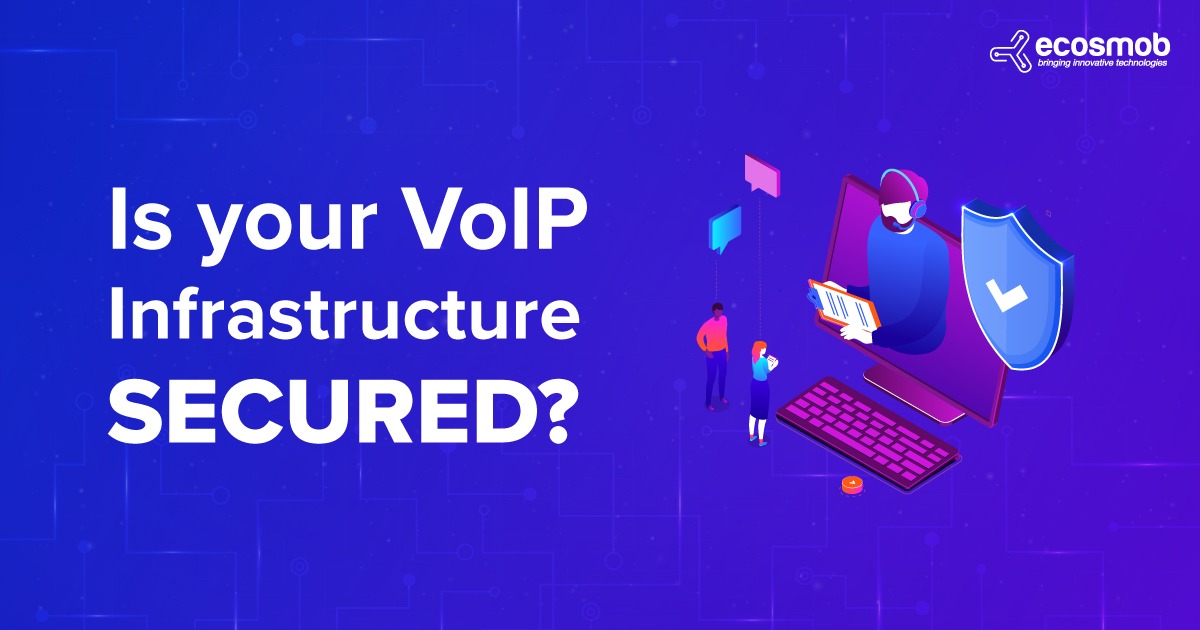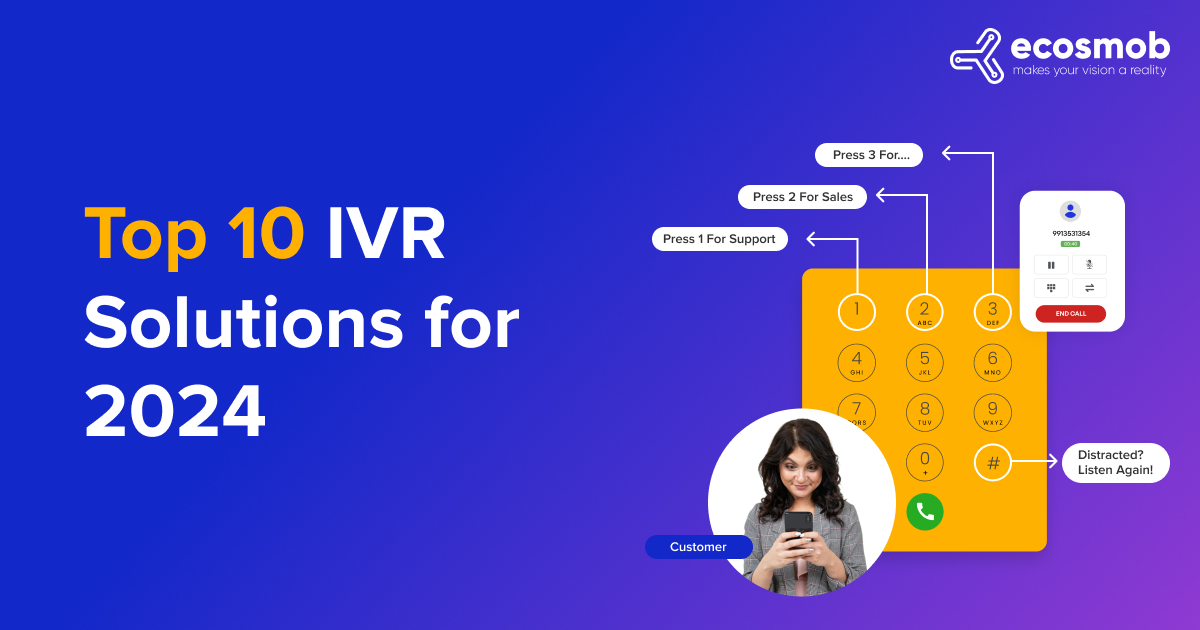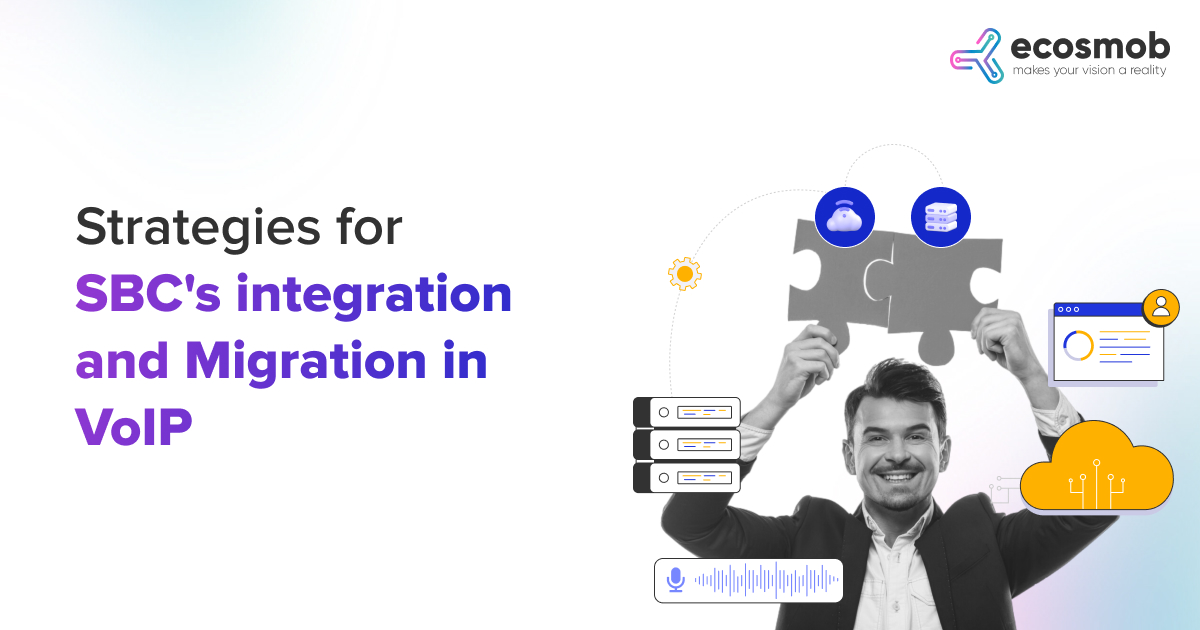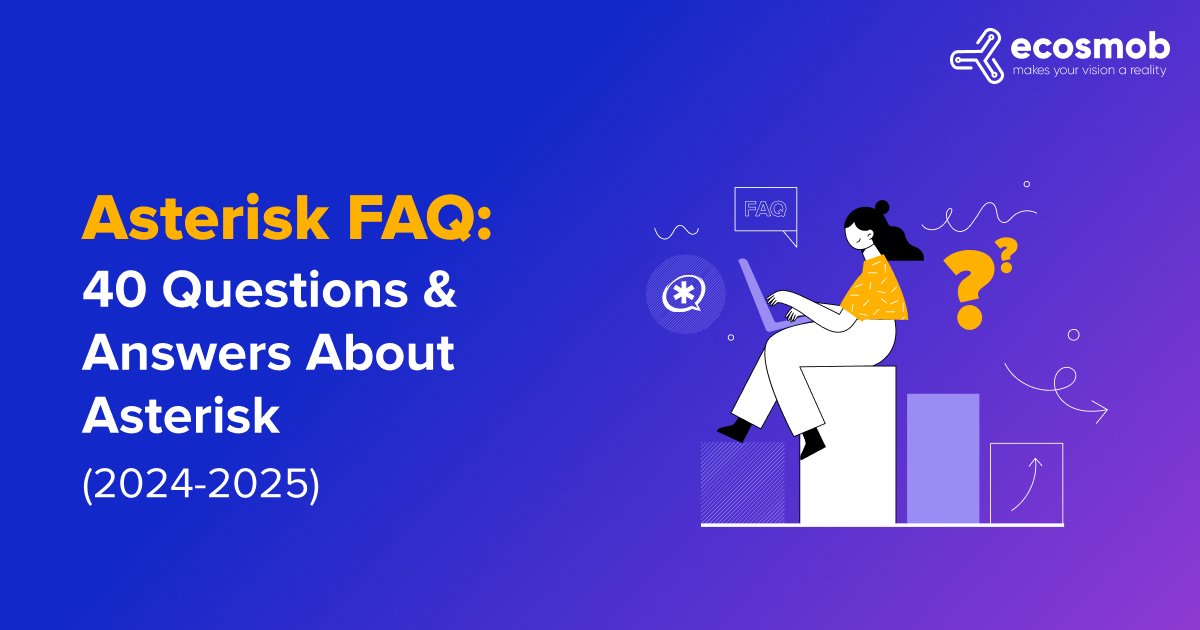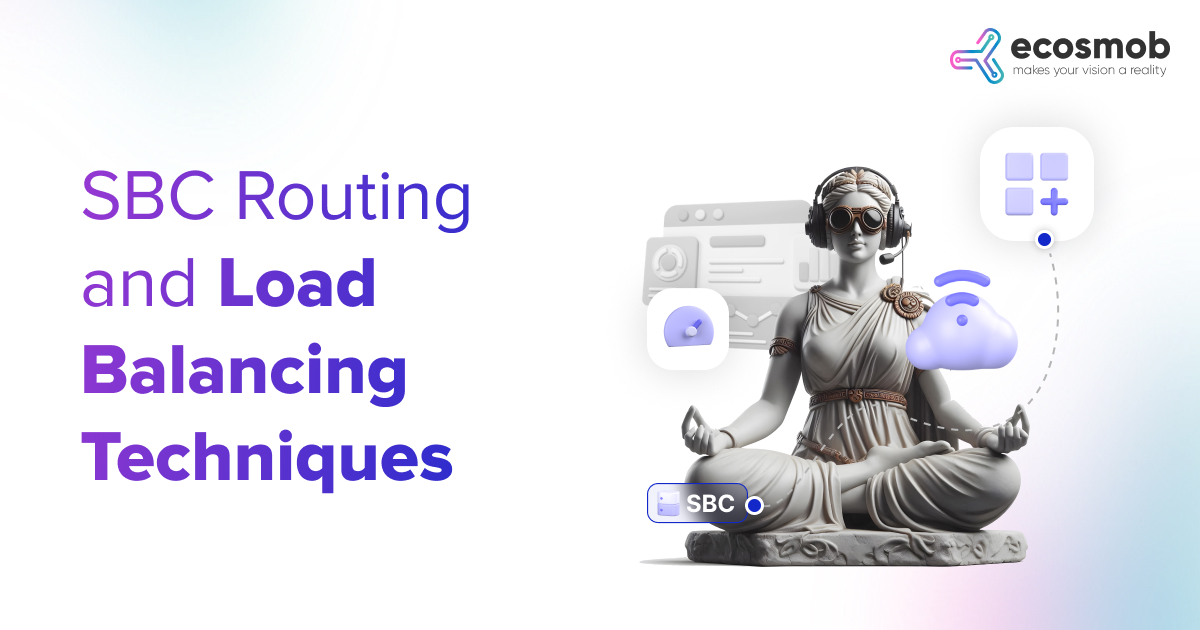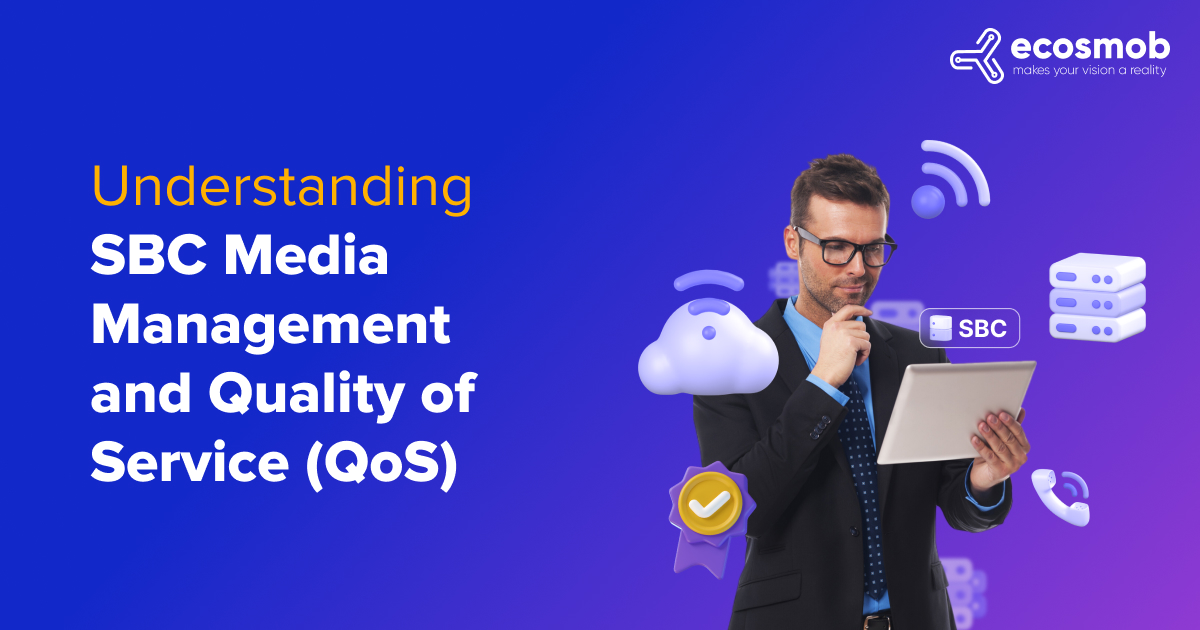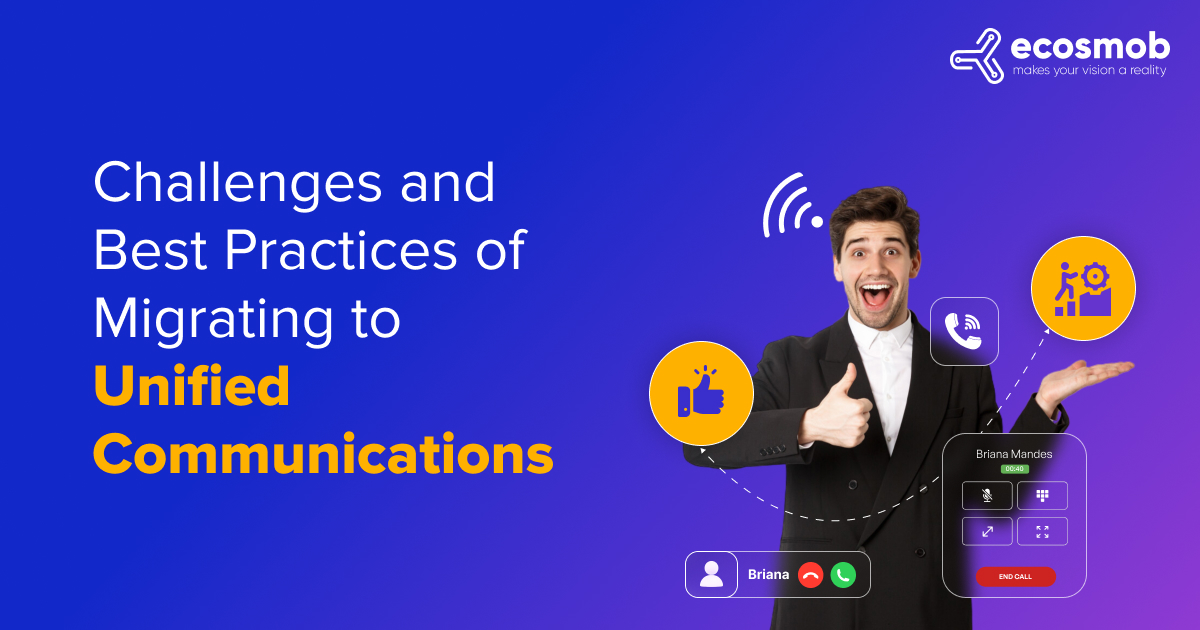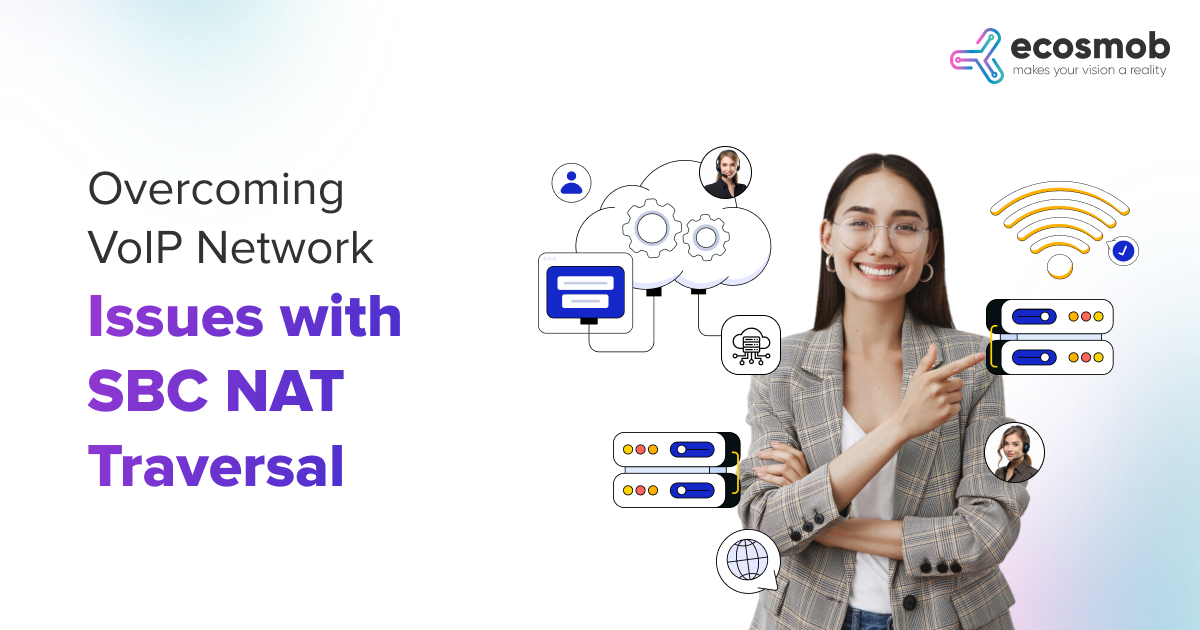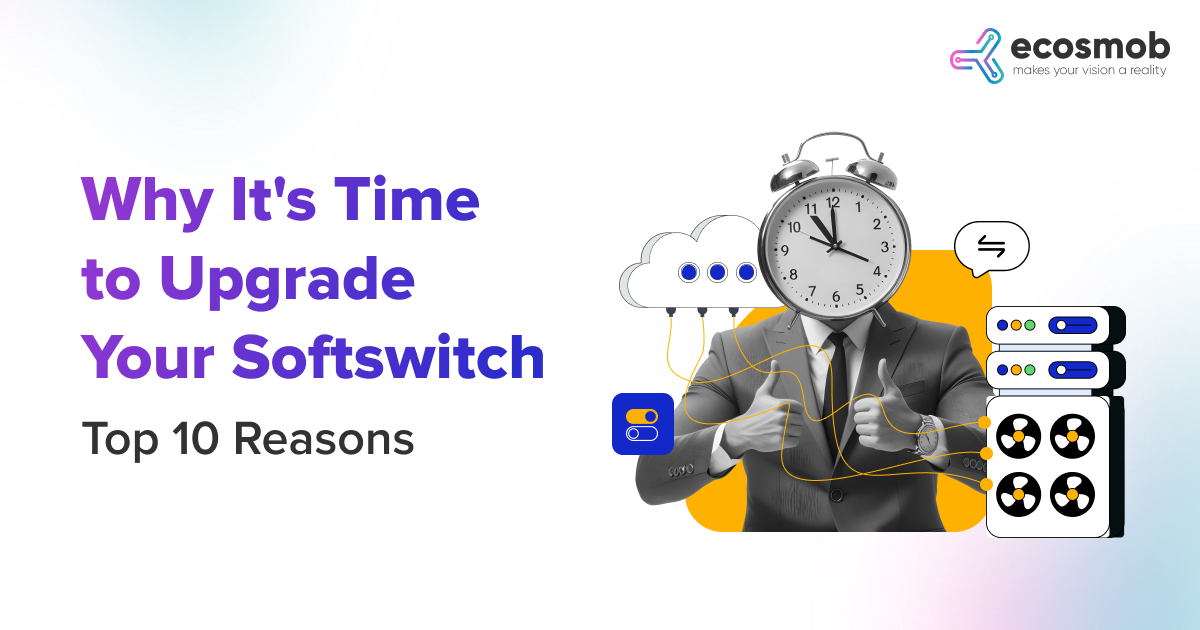One of the most common concerns that enterprises have about VoIP phone systems is security. Business leaders want to be doubly assured that their cloud-based telephony solutions are resilient to security threats. A survey of US-based CEOs conducted by PwC in 2020 found that 47% were extremely concerned about cyber security. In fact, technology-related threats emerged as the number one apprehension among industry leaders – racing ahead of policy, trade, government regulation, and geopolitical flux.
In the real world, no communication system is fully bulletproof. Security is an ever-evolving issue and the world of technology discovers new threats – and ways to counter them – all the time. This makes it imperative for businesses to hack-proof their VoIP phone systems.
On the one hand, a VoIP business solution has gained global traction for being a cost-effective and high-quality phone solution that is being embraced by large enterprises as well as small businesses. But these financial and productivity advantages can be quickly neutralized if you don’t build strong walls to protect your system against cyber attacks.
In 2017, telecom fraud resulted in $29.2 billion in losses, with PBX and toll fraud topping the list.
Complacency can be costly. Like any technology that runs on a data network, VoIP implementation should come with a clear focus on preventing cybercriminals from finding their way into your phone system. Eavesdropping can cause a serious business dent for financial institutions, professional services firms, and government agencies.
Similarly, hacking into a call center phone system can open a can of confidential information, payment card data, and private health records.
Voicemail hacking can put private business information in the public domain. With workplaces moving to a more distributed model during the pandemic, VoIP needs to be secured more than ever before. Be it a hosted IP phone service or an onsite VoIP system, every modern-day voice network needs the same protection as any data network. Securing your business phone system can help prevent VoIP fraud that affects your budget, time, and manpower.
The good news is today there are several measures to counter VoIP security issues. As technology prowess evolves, professional VoIP networks have become resistant to abuse.
In this blog, we’ll show you how to maintain the privacy of your SIP-based phone system. We’ll also check all the boxes on how to secure VoIP calls, including top security issues, mitigation tactics, and best practices. We’ll also take a deeper look at the security threats that plague business phone systems.
Why is VoIP Security Important?
The cost of a security breach continues to rise every year. As per an IBM report, the average cost of a cyber breach in the US was $8.1 million in 2019. Security is essential to every business and disruption to your phone system can cause catastrophic consequences.
Securing your VoIP network in today’s hybrid work environment is imperative for some key reasons:
1. Many businesses moved to a distributed work model during the pandemic, with employees largely working from home. This means your consolidated office network is now connected to home networks, unknown routers, and personal – and at times unmanaged – devices. This can dent your security detail.
2. Most VoIP solutions provider today offers Unified Communications as a Service (UCaaS) to their clients. This combines voice capabilities with text-based chat, shared meetings, video conferencing, scheduling, as well as file sharing and data transfer features. Managing security in such an environment is critical.
3. Over half of the small businesses suffer from data breaches every year. This happens because hackers are aware that these businesses don’t have proper security measures in place. It is time for them to take charge of their security protocol.
4. Cyber attacks can have serious financial consequences for businesses. The average cost of a data breach was $3.86 million in 2021. Breaches that happen at such a scale can break the back of small businesses.
5. Many businesses don’t recover from security breaches. Studies reveal that over 60% of small businesses are forced to shut shop within six months of a cyber attack. Even if you `recover’ or `back-up’ your data, the financial damage is serious enough to destroy businesses.
Top VoIP Security Threats
No device can ever be 100% protected from security threats. But identifying the most common VoIP vulnerabilities and taking adequate measures to prevent them can help businesses enjoy hack-proof phone systems. Let’s look at some of the top VoIP software development security risks.
· Distributed Denial of Service (DDoS)
This attack overwhelms servers and makes it impossible for businesses to use their VoIP services. This is usually caused by a network of botnets, which are remotely-controlled computers/bots that hackers have manipulated. They flood networks with more data than they’re capable of handling and render them unusable.
· Packet Sniffing and Black Hole Attacks
Pack Sniffing is one of the most common VoIP attacks. It allows hackers to steal and log unencrypted information contained in voice data packets while they are in transit. It also makes it easy for hackers to intercept usernames, passwords, and other sensitive data.
· War Dialing
This attack involves controlling your PBX to “scan” other telephone networks. It works by dialing numbers to connect to modems or other extensions.
· Toll fraud
Hackers intentionally make an excessive number of international calls from your business phone system so they can get a portion of the revenue the calls generate.
· Vishing
This is essentially VoIP-based phishing. A hacker calls you from a trusted phone number to get you to reveal sensitive information like passwords and credit card numbers.
· Call interception
Hackers use unsecured networks to intercept unencrypted SIP traffic. This can be done on video calls as well.
· Spam
The voicemail box is a common target for robocalls and other phone scams, where restricted or private caller IDs are also often used.
· Malware and viruses
They impact VoIP by creating multiple network security issues which consume network bandwidth, add to signal congestion, and cause signal breakdown for VoIP calls. They also corrupt the data being transmitted across networks.
· Phreaking attack
This is a type of fraud where hackers break into a VoIP system to make long-distance calls, change calling plans, add more account credits, and make phone calls from your business account. Hackers can also steal billing information, access voicemail, and even reconfigure call forwarding and routing strategies.
· Man-in-the-middle attacks
They occur when hackers insert themselves between a VoIP network and the call’s intended destination. This usually happens on public and unsecured WiFi networks, which are intercepted by hackers who reroute it through their own servers, infecting them with spyware, malware, and viruses.
Best Practices for VoIP Security
Having understood what security threats affect VoIP systems the most, let’s look at the best practices you can adopt to keep your VoIP security, your finances, and your business reputation protected from bad actors on the internet.
· Secure your network with a strong password policy
It is essential to change the password on your VoIP device. VoIP phone systems have a preset password that needs to be changed once it is ready to use. It’s good practice to periodically remind employees to update their passwords. Use a combination of letters, numbers, and non-alphanumeric. Make sure your employees don’t add their passwords to text files or scribble them down on Post-It notes.
· Regularly review your call logs
By checking your call reports regularly and comparing them periodically, organizations can get an easy tip-off when there is any change in call activity and zero in on any gaps or misuse. By checking for abnormal call durations, destinations, and the times when unwanted calls are made, administrators can ensure their system is not compromised.
· Opt for frequent operating system updates
Encourage your users to accept frequent OS updates for their iPhone or Android. This will help guard against malicious software hacks and viruses.
· Use SaaS for VoIP calls
Rather than building and maintaining your own VoIP infrastructure, outsource your PBX and VoIP services to a VoIP network provider. This will provide you with easy access to built-in security measures to protect you from fraudulent activity on your VoIP phone system and will provide an extra pair of eyes to check against threats.
· Deactivate inactive accounts
When an employee quits the company, ensure that you update the IT department. By disabling the accounts of old employees, organizations can limit workplace disruptions and prevent security threats.
· Encrypt all your voice traffic
Encrypt the signaling at your Internet gateway with Session Initiation Protocol (SIP) over Transport Layer Security (TLS). Encrypt the media (packets) with protocols such as SRTP. Use VPNs for network connections by remote phones. This is especially critical when HTTPS or SRTP is unavailable. Even if there is a situation when someone gains access to your system encrypted VoIP connections ensure the data is of no use to them.
· Use a router with a firewall
At times organizations want to connect their IP phones directly to the internet without using a router or firewall. This can result in anyone with an internet connection gaining access to the phone’s web interface. Make sure your router is not set on bridge mode. This feature basically disables routing and assigns a public IP address to all devices on the network. If your router has a firewall, enable it. They keep a check on all traffic that goes in and out of a network and block anything suspicious.
· Add intrusion prevention systems to your network
These systems keep a check on the performance of your VoIP system and balance the load on your network to ensure that the performance stays top-notch. When combined with other security features, these measures also detect abnormal activity that accompanies eventualities like a Distributed Denial of Service attack.
· Set up a Virtual Private Network (VPN) for your remote staff
VPNs can encrypt all traffic irrespective of where your employees are working from. This is a perfect fit for remote work scenarios.
· Conduct Frequent Security Audits
Even a small oversight in network security can impact your VoIP calls. Therefore, it’s critical to focus on frequent audits that should be performed by verified security agencies so proper preventative action can be taken. Security assessments include gateway assessments, firewall configuration, cyber-attack simulations, application-based security scanning, and patching procedures.
Looking Ahead: The future of secured VoIP systems
VoIP has grown from a personal service to an essential business communication platform. It’s proven its value, and today, secure SIP-based able calling is considered a standard way of communication. And if the year of the pandemic taught enterprises anything, it is that they must be prepared for every eventuality. And organizations that secure their voice traffic are more resilient than those that do nothing about it. Enterprises are fast realizing that mitigating security threats is the best way to make their VoIP network powerful and future-ready.
If you want to know more about VoIP security or how to secure VoIP calls, you can communicate and collaborate, reach us at sales@ecosmob.com.
